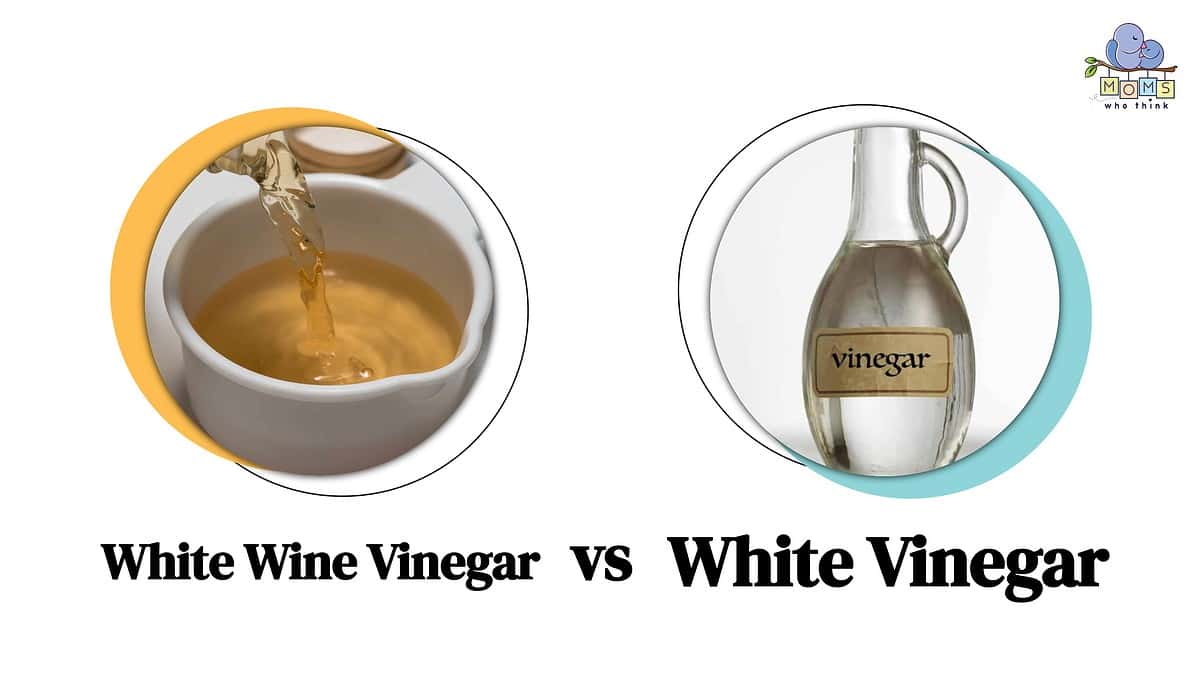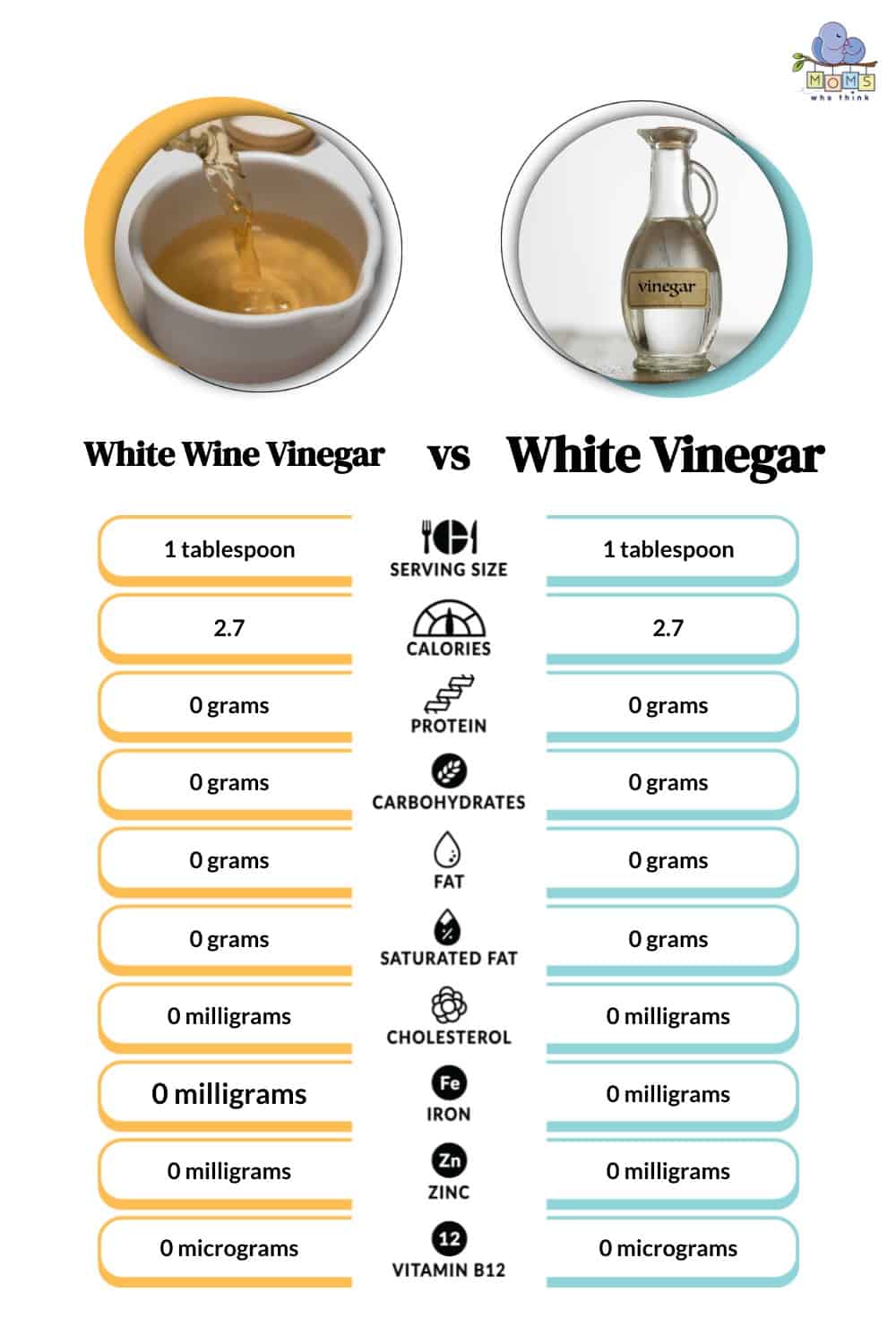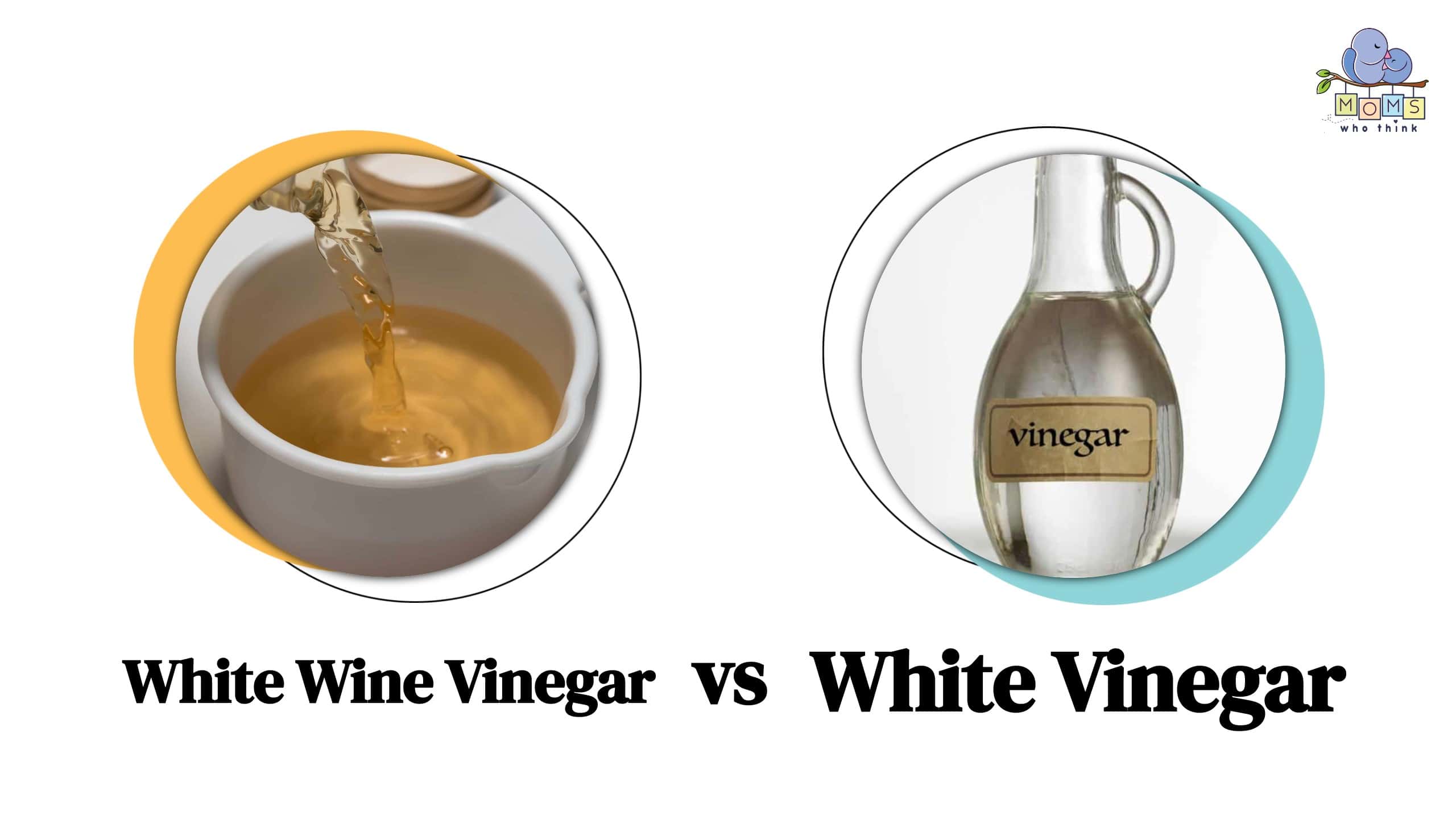White Wine Vinegar vs. White Vinegar: What's the difference? While you may think you can use these two vinegars interchangeably, they are quite different. They are made with other ingredients and serve different purposes.
White wine vinegar was originally made in France from the Middle Ages to the 17th century. You can also find traces back to Babalon thousands of years earlier. The story goes that wine was left out for several months, leading to the discovery of vinegar. Today, white wine and vinegar are used in restaurants and sold globally in groceries.
This guide dives into the differences between wine vinegar and white wine vinegar. We look at how they are different and how you can use them for your recipes. The more you learn about them, the more you'll discover how they influence the taste of whatever you're eating. You'll also find how they have different health benefits.
White Wine Vinegar vs. White Vinegar: How They Are Made

The biggest difference between these vinegars is the ingredients in each of them. For example, white wine vinegar is made with white grapes. It's also much more acidic and milder in taste when compared to white vinegar and other vinegar.
However, white vinegar is made with alcohol, specifically through fermentation. This is typically with grain alcohol. It's also made in a laboratory instead of white wine vinegar, which can be made anywhere. It usually takes up to six weeks to make white wine vinegar.
Here's what defines white wine vinegar:
- Takes up to six months to make.
- The process involves pouring the vinegar into acetates.
- The vinegar is then exposed to acetic acid.
- Before bottling, the acetic acid has to be diluted with water.
Here's what defines white vinegar
- It is made with grain alcohol.
- The process takes six to eight weeks.
How It's Used In Recipes
Since white wine vinegar has more acidity than white vinegar and other vinegar, it's often perfect for dressing, marinade, and sauces. However, since white vinegar is a fermented alcohol, it's often best for cleaning and sometimes cooking.
White vinegar is also better for poaching eggs because of its acidity. There are also a host of other recipes you can make with either one.
Here are some recipes you can make with white wine vinegar:
- Salmon and Egg Brown Rice Salad
- Spicy Sriracha Egg Salad
- Cherry and Chocolate Pavlova
- Raspberry & Sweet Chilli Jam
Here are some recipes you can make with white vinegar:
- Sweet and sour fish
- Fried wontons
- All-butter pie crust
- BBQ Eggs
These are just some ideas about what you can make with either vinegar. You'll also find uses beyond food, like cleaning windows, brass polish, weed killer, pest killer, and more. There's a lot more that either vinegar can be used for that shows how diverse each is.
Health Benefits
While white wine vinegar and white vinegar are different, they still have many health benefits.
For example, white wine vinegar has probiotic bacteria. This promotes our gut health. It also helps slow digestion and reduces the number of calories in our bodies. Other benefits include lowering our cholesterol and having anti-inflammatory properties.
One of the best health benefits of white vinegar is that it keeps warts away. It also helps with ear infections. Other benefits include helping moderate insulin levels. This is a way of helping regulate your blood sugar.
How to Substitute One for the Other
It's not recommended to substitute white wine vinegar for white wine because it is much more acidic. This could cause disastrous effects on whatever you're making, changing the flavor of it.
However, if you have to substitute one for the other, the best way to do it is to know the ratio of how to swap them. Use about a tablespoon (slightly less) of white vinegar and a quarter of a tablespoon of water for every white wine vinegar. This can help offset the flavor of the acidity of the white wine vinegar.

White Wine Vinegar vs. White Vinegar: What Tastes Better?
It's easy to confuse white wine vinegar with white vinegar. The confusion is because they have similar names, making it easy to assume they have the same taste. Understanding how they are different and their purposes gives you better insight into how to use them.
Overall, there's more than one difference between to white wine vinegar and white vinegar. They have different health benefits, tastes, and ingredients. Knowing this can prevent you from making mistakes between them and give you a better of how they are used.

